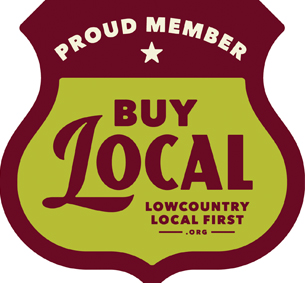


This is the first in a series of interviews with the civic-minded organizations that embraced the “If You Were Mayor” concept long before it was a reality. We had a recent conversation with the Lowcountry Local First Executive Director Jamee Haley to discuss her vibrant organization and the future of Charleston.
Tell us about LLF’s mission and how that segues with the question of livability in Charleston? Our mission is to build an economy based on what makes the people and place of Charleston unique – what makes us great – and how that must be protected from the pressures of explosive growth facing the region down the road. We’ve done this by working to maintain and grow the local agricultural economy (SC’s largest industry), and that has naturally led to encouraging the synergy between farmers and local culinary businesses and restaurants; being an advocate for local businesses and farmers; and developing affordable workspace for entrepreneurs. Ultimately, livability depends on thriving local businesses that reflect what makes Charleston special so that people will continue to come here to live, work and play.
And, what if you were Mayor? The challenges of the region’s rampant growth must be seen as an opportunity. We certainly need to protect what makes Charleston great and diverse, and avoid the ill effects of gentrification and commercialized homogenization. Designated local business districts could attract shops like core businesses – hardware stores, shoe repairs shops, or drug stores – that are being driven out of the city center. Areas like the neck and upper peninsula may be more suitable and affordable while still in reasonable proximity to customers.
We should also consider the concept of “anchor institution” for MUSC since it is the region’s largest employer and is a stabilizing presence. It has been noted that some institutions like this actively and successfully engage in community and economic development by identifying economic “leakages” – these then become opportunities for neighborhood revitalization, incubating small businesses and innovating employee ownership models. While the Horizon Project might be one step in this direction, there is obviously still plenty of room for the university to play a significant leadership role in the future of its west side neighborhood within the overall framework of the city.
For Charleston, the challenge seems to be recognizing that while our economy is flourishing, we still have many opportunities for innovation that ensure everyone can benefit from the region’s success.